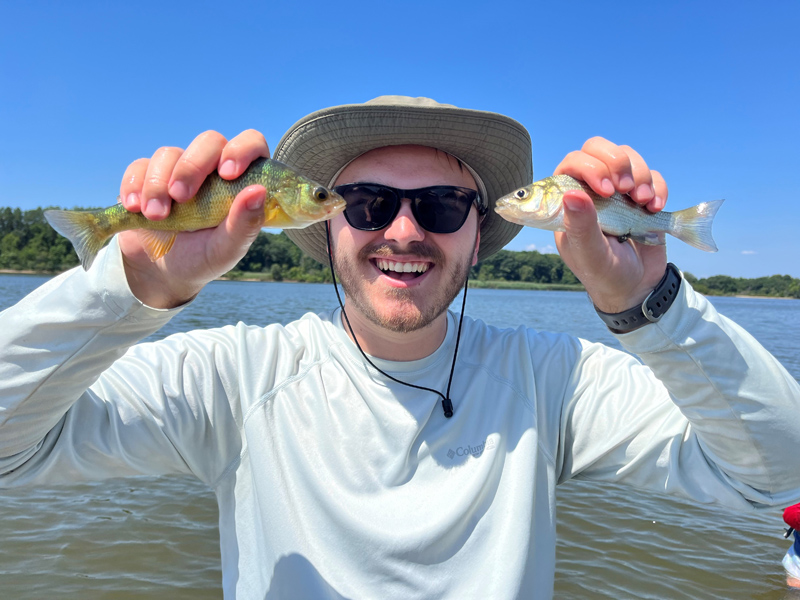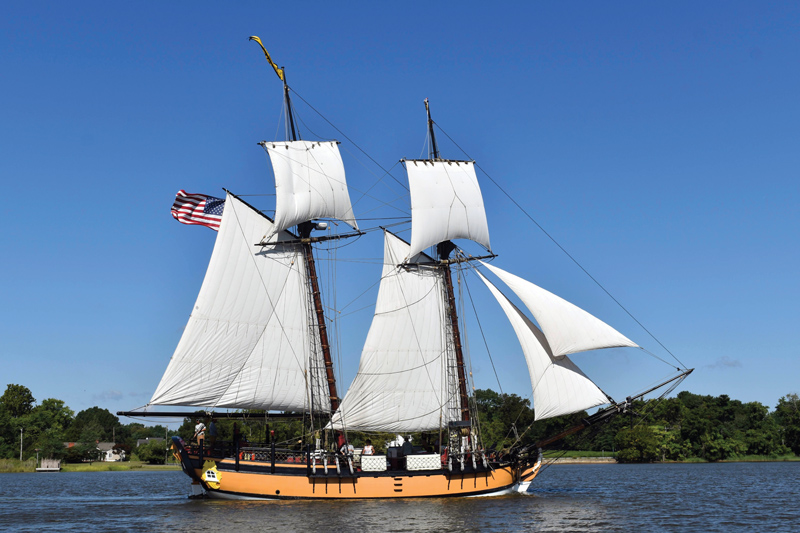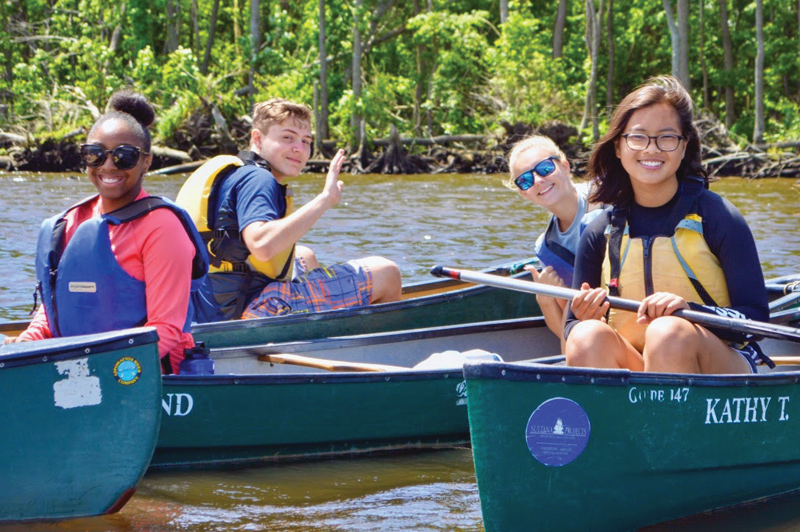Hands-on experiences teach students about the Bay
This summer, I had the pleasure of working on the Chesapeake Bay for Sultana Education Foundation’s paddling program as a trip leader.

The organization takes its name from the schooner Sultana, a replica of an 18th-century British Navy vessel that sailed the Chesapeake enforcing taxes prior to the Revolutionary War. The nonprofit provides educational opportunities that integrate the culture, history, and ecology of the Chesapeake Bay. The organization plays a role in addressing environmental issues by creating stewards for the Chesapeake.
“I think the most important thing we do is make direct connections between our local students and their environment. Without that connection, there’s no reason for them to get motivated to care and caring is the first critical step towards action,” says Chris Cerino, vice president of Sultana.
Differing from advocacy or political groups, “We have a more fundamental approach of connecting our constituents to the resource that’s right in their own backyard in a way that’s fun, informative, educational, and inspiring.”

Schooner Sultana as a teaching platform
The Schooner Sultana hosts summer camps, school trips, and public sails. Summer camps and school trips include setting sail, using the otter trawl to learn about marine life, talking about 18th-century navigation, and going below deck to learn about life as a sailor.
The goal is to, “engage kids with the world around them, both its historical context and current ecological context,” says Kate Dumhart, captain of Sultana. “You’ve got to like it before you want to do anything about it. So, how do we make it fun and accessible?”
“I think a lot of people are nervous around the water, especially people who haven’t spent a ton of time on the water,” says Dumhart. “But the water we’re operating in and the structure of the vessel make it very accessible. (She) doesn’t heel over that much, there aren’t many big waves, and you’re really high off the water. In a lot of ways, it’s more of a floating classroom.”

Paddling into nature
Paddling programs include canoe or kayak day camps, public paddles for adults, and overnight kayak camps that range from three to seven days. The average day includes paddling to a beach, swimming, using the seine net, fishing, and identifying the birds, fish, and other wildlife the group stumbles upon.
Marcus Goldman, associate director of paddling programs, says his goal for every camper is to have a positive experience in nature that pushes them to try something new: “It’s different for everyone. Some of those experiences might be paddling for an hour, catching a fish, holding it, and maybe even kissing that fish.”
Sultana reaches local school students
School partnerships allow Sultana to enhance schools’ curriculum by providing hands-on learning opportunities.
“We really try to work with our local Eastern Shore schools, where there’s a lot of poverty. A lot of these kids might live blocks from the Chester River, but when they come on Sultana, it’s their first time setting foot on a boat of any kind,” says Cerino.
Jackie Doerr, director of science programs, often sees the same students through multiple grade levels, “We get to see the same kids over time and how they mature and grow. They not only learn about the environment, but also build their own confidence.”
Doerr mainly works with pre-K through seventh grade which means her lessons do not focus on climate change and environmental issues, but she sees her work as making a difference. “I think the most important thing you can do, from that young age especially, is get them to fall in love with nature and with being outside. Anything you can do to make them care from a young age is going to be incredibly powerful.”
Cultivating future stewards of the Chesapeake
My experience with Sultana reminded me that my love of the natural world is rooted in the opportunities I had as a child to get out into nature. Despite the numerous issues facing the Bay, I shared beautiful moments on its shores as a child and witnessed campers do the same this summer. The experience emphasized the importance of understanding our place in the ecosystems we call home and our place in the Chesapeake’s history. The work was an opportunity to give back in hopes of cultivating future stewards of the Chesapeake.
To learn more, visit sultanaeducation.org.
by Thomas Crabtree




